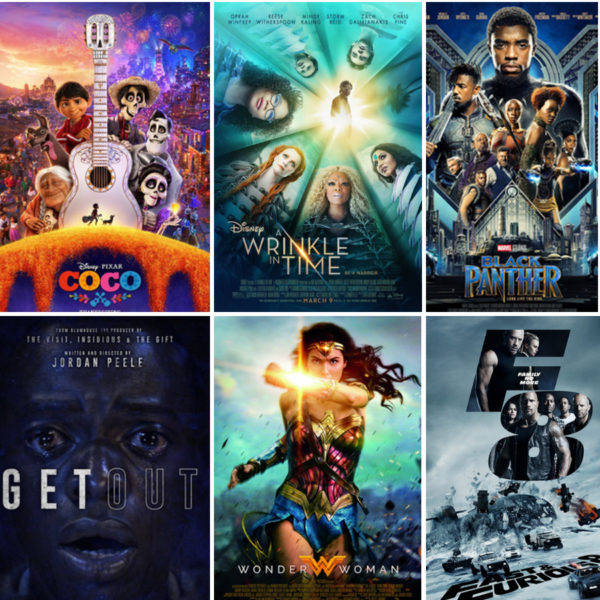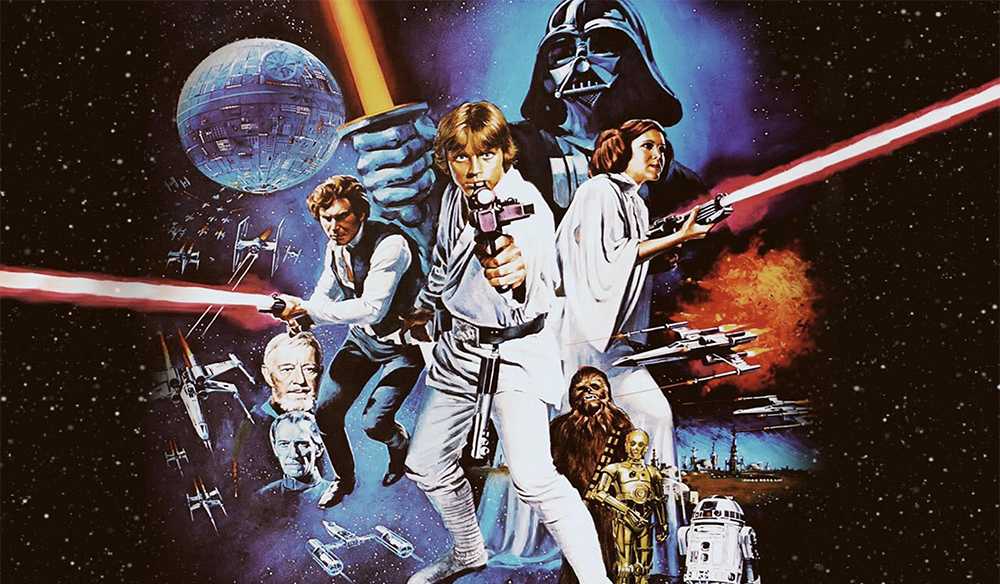The Impact of Representation and Diversity on Movies
"Unlock the Power of Inclusivity ?? Dive into Representation and Diversity on Movies! ?? Explore Now for Eye-Opening Insights

The Importance of Representation and Diversity in Movies
Movies have been a powerful medium of storytelling and entertainment for over a century. They have the unique ability to transport us to different worlds, evoke powerful emotions, and inspire us to see the world from new perspectives. In recent years, there has been a growing awareness of the importance of representation and diversity in movies. This shift in perspective has brought about a positive change in the film industry, both in front of and behind the camera. In this essay, we will discuss the significance of representation and diversity in movies, exploring how it not only enriches cinematic experiences but also contributes to a more inclusive and empathetic society.
Representation Matters
- Reflecting Realities: One of the fundamental reasons why representation in movies is crucial is that it reflects the diverse realities of our world. Cinema has the power to mirror society, allowing people from different backgrounds to see themselves on screen. When individuals see characters who look like them, share their experiences, or face similar challenges, it can be incredibly empowering and affirming.
- Inclusivity: A diverse cast and crew ensure that a wider range of voices and perspectives are heard. Inclusivity is not just about ticking boxes; it's about acknowledging the multiplicity of human experiences. When movies include characters and stories from various backgrounds, it sends a message that everyone's story is worth telling and that everyone's voice matters.
- Breaking Stereotypes: Historically, movies have perpetuated harmful stereotypes and biases. However, with increased diversity, filmmakers have the opportunity to challenge and break these stereotypes. By presenting characters who defy traditional norms and expectations, movies can help combat prejudice and promote understanding.
- Global Reach: In today's interconnected world, movies often have a global audience. When films feature characters and stories from different cultures, they have the potential to bridge cultural gaps, promote cross-cultural understanding, and foster a sense of unity among diverse communities.
Economic Benefits
- Expanding Audiences: The film industry is a business, and diverse movies can attract broader audiences. When people see themselves represented on screen, they are more likely to engage with the content, leading to increased ticket sales and revenue.
- International Appeal: As the global market for movies continues to expand, films that incorporate diverse perspectives have a better chance of resonating with international audiences. This can lead to greater success in overseas markets, which are increasingly important for the industry's profitability.
- Niche Markets: Diverse films can tap into niche markets that may have been overlooked in the past. For example, LGBTQ+ films, African cinema, and Asian cinema have gained significant followings, proving that there is demand for a wide variety of stories.
Social Impact
- Empathy and Understanding: Movies have the power to evoke empathy and foster understanding. When audiences see characters from different backgrounds facing challenges, it can lead to greater compassion and a willingness to learn about and connect with people who are different from themselves.
- Social Progress: Film has played a role in driving social change throughout history. Movies like "To Kill a Mockingbird" and "12 Years a Slave" have shed light on important issues and contributed to discussions about civil rights and racial equality. Diverse films can continue to be a catalyst for social progress.
- Inspiring Future Creators: When aspiring filmmakers from underrepresented communities see themselves reflected in the industry, it can inspire them to pursue careers in film and storytelling. This not only brings fresh perspectives to the industry but also ensures that it continues to evolve.
Challenges and Controversies
While the importance of representation and diversity in movies is widely recognized, there are still challenges and controversies that the industry must address:
- Tokenism: Some critics argue that diversity in movies is sometimes tokenistic, with a single character or aspect of diversity being included merely to check a box. True representation goes beyond tokenism and involves meaningful, well-rounded portrayals.
- Cultural Sensitivity: Filmmakers must be mindful of cultural sensitivities and avoid perpetuating stereotypes or appropriating cultures. Authentic representation involves research, consultation, and respect for the communities being portrayed.
- Resistance to Change: The film industry, like any other, can be resistant to change. Some argue that casting decisions are still driven by profit rather than a commitment to diversity. However, changing audience expectations and social pressures are gradually pushing the industry toward greater inclusivity.
Addressing the Challenges
To ensure that the importance of representation and diversity in movies is fully realized, the film industry must actively address the challenges and controversies it faces:
- Authentic Casting: Filmmakers must prioritize authentic casting, which means selecting actors who have a genuine connection to the characters they portray. This approach not only promotes diversity but also leads to more convincing and nuanced performances.
- Behind-the-Scenes Diversity: While diversity in front of the camera is crucial, it's equally important behind the scenes. Encouraging diversity among writers, directors, producers, and crew members ensures that diverse stories are not only represented but also told authentically.
- Support for Underrepresented Filmmakers: Providing resources, mentorship, and funding to underrepresented filmmakers is vital. Many talented individuals from marginalized backgrounds face systemic barriers to entry in the industry, and support initiatives can help level the playing field.
- Inclusive Storytelling: Filmmakers should strive to create stories that celebrate diversity without reducing characters to their stereotypes or identities. Characters should be multidimensional, with their diversity being one aspect of their complexity rather than their defining feature.
- Audience Education: Moviegoers also play a role in promoting diversity in film. Engaging with diverse content, supporting films with authentic representation, and critically evaluating the media they consume can create a demand for more inclusive stories.
- Industry Accountability: Holding the film industry accountable for its actions is essential. Advocacy groups, critics, and activists play a crucial role in raising awareness about issues related to representation and diversity, and they can put pressure on studios and production companies to make positive changes.
Success Stories
Several recent films and movements have demonstrated the power of representation and diversity in movies:
- "Black Panther": Marvel's "Black Panther" became a cultural phenomenon not only for its groundbreaking portrayal of a black superhero but also for its celebration of African culture. The film's success demonstrated that diverse stories can be both commercially successful and artistically acclaimed.
- #OscarsSoWhite: The #OscarsSoWhite movement drew attention to the lack of diversity in Oscar nominations and prompted the Academy of Motion Picture Arts and Sciences to take steps to diversify its membership and voting body.
- "Parasite": The South Korean film "Parasite" made history by winning the Academy Award for Best Picture, breaking barriers for foreign language films. Its success showcased the global appeal of diverse storytelling.
- Streaming Platforms: Streaming platforms like Netflix, Amazon Prime, and Hulu have provided opportunities for underrepresented voices to thrive. Shows like "Pose" and "Master of None" have explored issues related to gender, sexuality, and ethnicity, resonating with audiences worldwide.
The importance of representation and diversity in movies cannot be overstated. It has a profound impact on individuals, society, and the industry itself. When movies reflect the rich tapestry of human experiences, they become more relatable, inclusive, and meaningful to audiences. Furthermore, they contribute to a more empathetic and understanding society, promoting social progress and positive change.
While challenges remain, the film industry has made significant strides in recent years towards better representation and diversity. As audiences continue to demand authenticity and inclusivity, the future of cinema promises to be more vibrant, diverse, and socially conscious. Ultimately, the power of movies to shape perceptions and inspire change makes it imperative that representation and diversity remain at the forefront of the cinematic landscape.
What's Your Reaction?

















